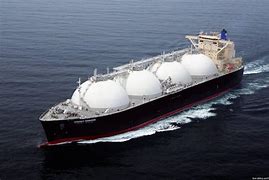Oil & Gas
AFRICA STARTS YEAR WITH A SMALL LNG OFFERING FOR THE WORLD.
JUMA SULEIMAN

Despite its vast potential for liquefied natural gas (LNG) exports, Africa has largely missed out on capitalizing on the global energy crisis to expedite development. The continent's resource-rich nations face numerous challenges, including infrastructure gaps, regulatory hurdles, and geopolitical uncertainties, which have slowed progress. However, recent developments signal that Africa is taking strides to assert itself in the global LNG market.
UK oil giant BP recently achieved a significant milestone with the launch of first gas at the Greater Tortue Ahmeyim (GTA) Phase 1 LNG project. This ambitious deepwater development, located offshore Mauritania and Senegal, is among the most technically challenging in Africa. Originally scheduled for completion in 2022, the project experienced delays due to the COVID-19 pandemic and a protracted dispute between BP and the suppliers of its floating LNG plant. The resolution of these issues allowed the project to finally commence, albeit at an increased cost.
The completion of the floating LNG vessel, after three and a half years, represents a turning point for the region. It demonstrates Africa's capability to overcome challenges in executing complex energy projects. With an estimated production capacity of 2.5 million metric tons per year (mtpa) of LNG, the GTA project positions Mauritania and Senegal as emerging players in the global LNG landscape, potentially unlocking further investments in the region.
This achievement underscores Africa’s untapped potential in the energy sector. As the world transitions to cleaner energy, African nations could play a pivotal role in meeting global LNG demand, provided they address lingering obstacles. Investments in infrastructure, policy reforms, and regional cooperation will be essential for the continent to fully leverage its vast natural gas resources and secure its place as a key contributor to the global energy mix.
